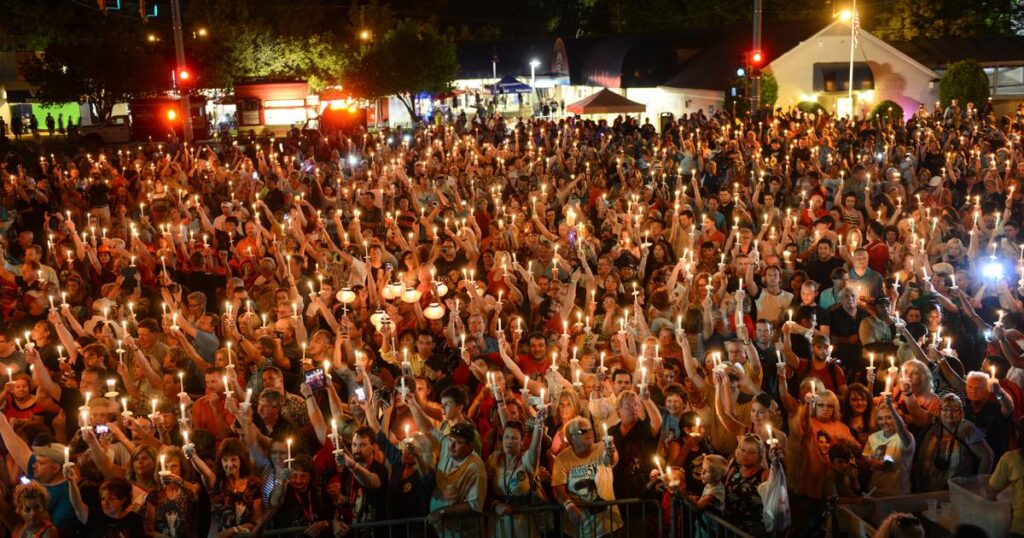When Elvis Presley died on August 16, 1977, the headlines spread like wildfire across the globe. More than 80,000 fans crowded Memphis for his funeral, and a record 3,116 floral arrangements poured into Graceland. At just 42 years old, Elvis’s sudden passing ended one of music’s most transformative careers, but it cemented his legacy as a cultural force. Nearly five decades later, his songs, films, and unmistakable style continue to shape music history.
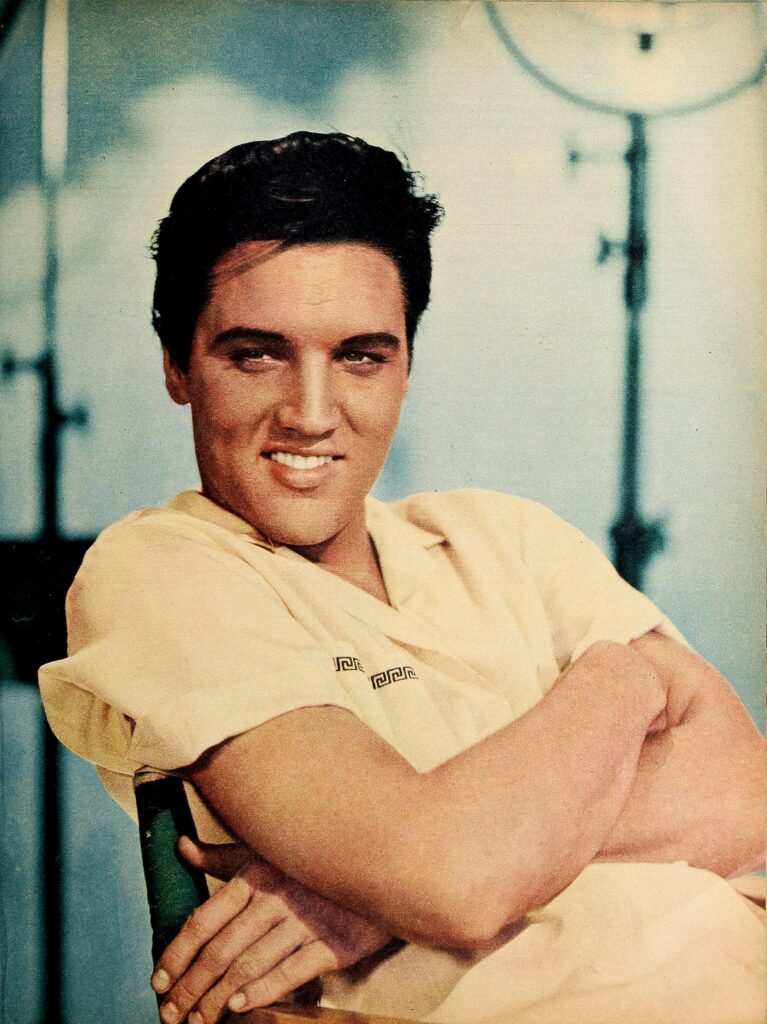
The 1968 Comeback Special
This smiling portrait of Elvis was captured during his legendary 1968 Comeback Special. At the time, many thought his career had faded — he’d spent years stuck in formula Hollywood films while rock music evolved without him. But on December 3, 1968, dressed head-to-toe in black leather, Elvis stepped on stage and reclaimed his crown. His voice was raw, his energy electric, and the world was reminded why he was called the King of Rock and Roll.
Graceland: A Living Memorial
In the days following Elvis’s death on August 16, 1977, Graceland became a pilgrimage site. Thousands of fans poured in to pay their respects, leaving flowers, letters, and personal mementos. Over 3,000 floral arrangements flooded the mansion, a testament to the devotion of fans across the globe. Decades later, Graceland remains a beacon for Elvis enthusiasts, attracting visitors eager to experience the home of the King and honor his enduring legacy.
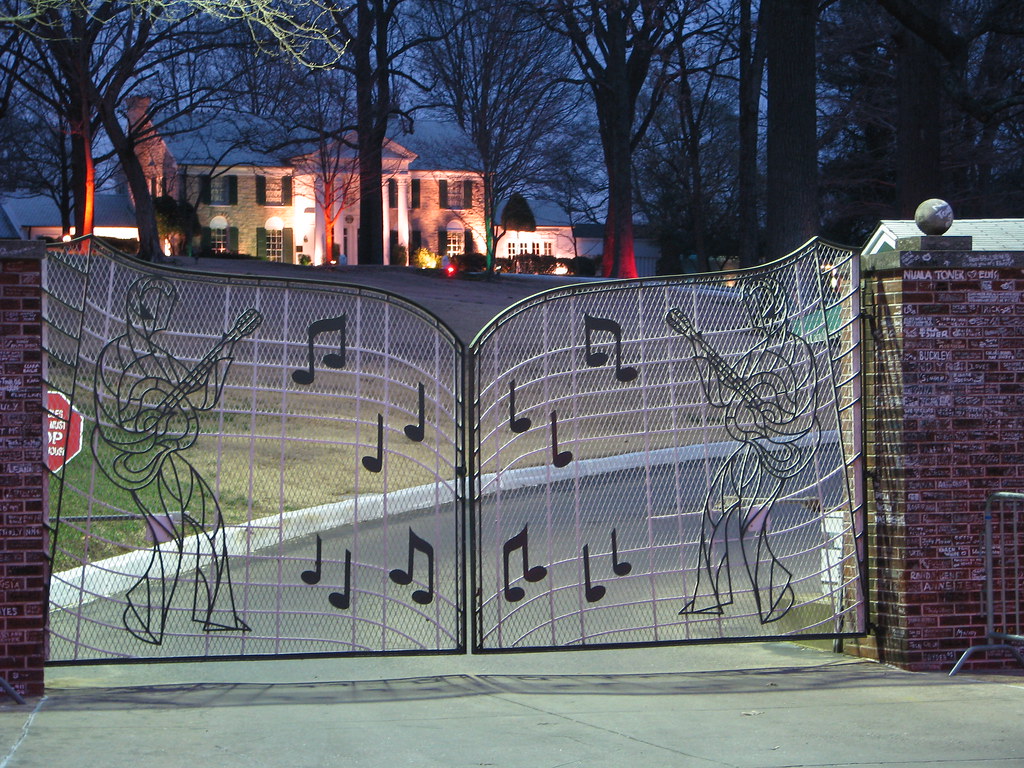
Elvis Presley’s Enduring Legacy
Decades after his passing, Elvis Presley remains one of the most influential figures in music and popular culture. His unique blend of rock, gospel, and blues reshaped the sound of a generation, while his magnetic stage presence set the standard for performers worldwide. Elvis didn’t just entertain — he inspired fashion trends, movie roles, and an entire fan culture that thrives to this day. From countless tribute acts and modern music sampling to the millions of visitors who flock to Graceland each year, his spirit continues to resonate with new generations, proving that the King’s impact is as powerful now as it was in the 1950s.
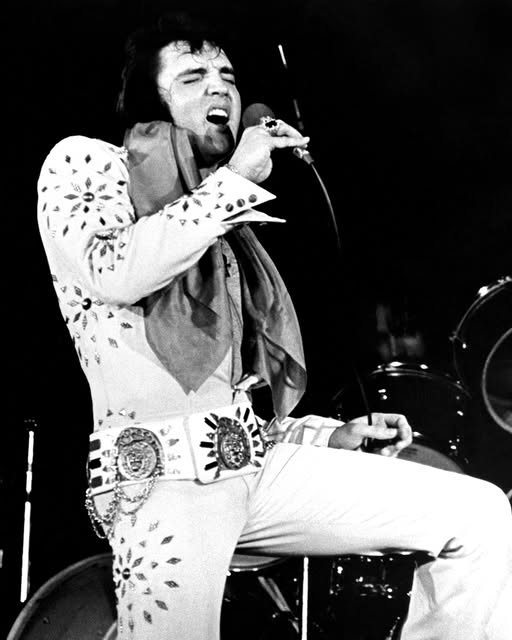
Memphis and Fan Culture
Memphis remains the beating heart of Elvis Presley’s enduring influence, drawing fans from across the globe to celebrate the King of Rock and Roll. From Graceland tours and themed events to fan clubs and tribute concerts, the city keeps his memory alive in every corner. Visitors gather to walk the same streets Elvis once did, pose for photos outside his mansion, and participate in lively fan traditions that have evolved over decades. This vibrant fan culture not only honors his musical legacy but also showcases how deeply Elvis continues to inspire people of all ages, creating a living connection between past and present.

The Legacy and Global Influence
Elvis Presley’s impact extends far beyond Memphis, resonating with fans across continents. From impersonators in Las Vegas and tribute festivals in Europe to radio specials in Asia and global streaming playlists, his music remains universal. Statues, murals, and pop culture references remind us that Elvis is more than an American icon—he’s a worldwide legend whose influence continues to shape music, style, and culture.
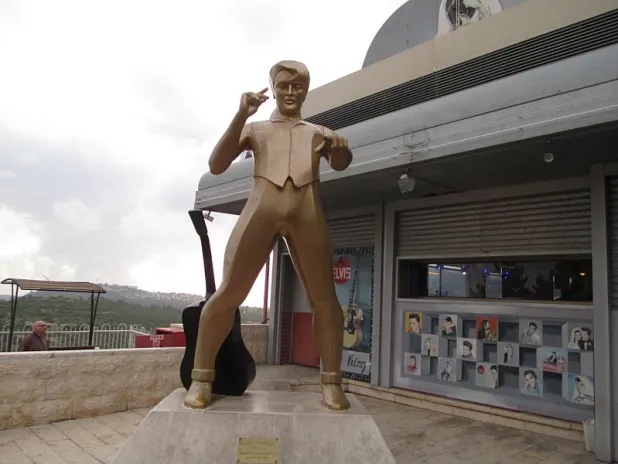
Hollywood and the King: Elvis on the Big Screen
When Elvis Presley stepped onto the small screen in the mid-1950s, America had never seen anything like him. His early appearances on The Milton Berle Show in 1956 showed off not just his voice, but his bold stage moves — a mix of rhythm, rebellion, and raw magnetism. The hip-shaking caused headlines, with critics calling it indecent while teenagers screamed for more. By the time he appeared on The Ed Sullivan Show, over 60 million viewers tuned in — that was more than half the U.S. population at the time.
Television gave Elvis a power no touring schedule could match: he wasn’t just a regional or radio star, he was suddenly in every living room, coast to coast. Parents clutched their pearls, ministers preached against him, and teens plastered his face on bedroom walls. The controversy only fueled his fame, making him the lightning rod of a cultural shift.
These TV performances didn’t just launch Elvis — they reshaped popular entertainment. They proved the screen could create superstars overnight, and Elvis was the blueprint. Without TV, there might never have been a King of Rock and Roll at the scale we remember today.
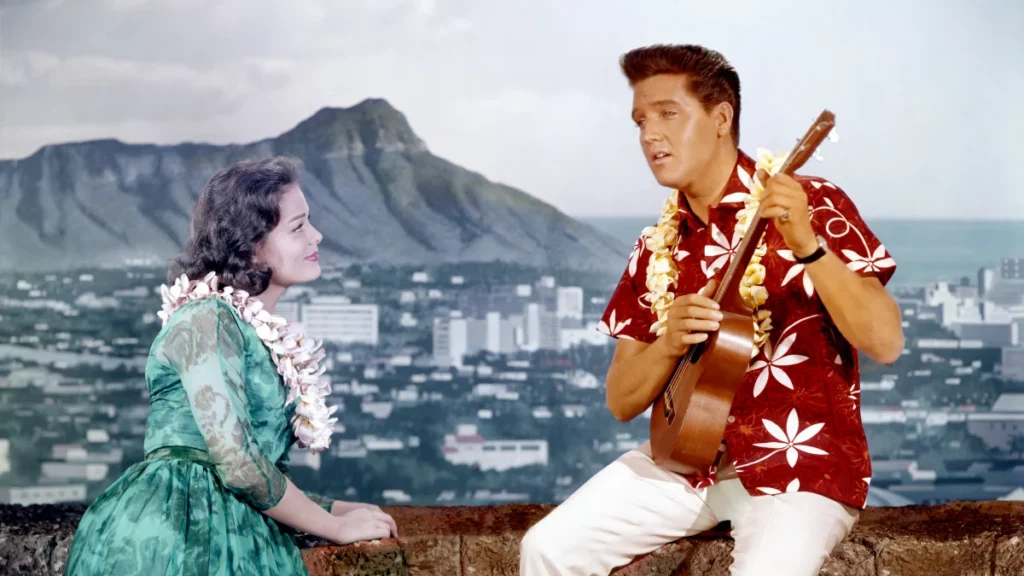
Elvis in the Army
In 1958, at the height of his fame, Elvis Presley was drafted into the U.S. Army. Rather than seek special treatment, he chose to serve as a regular soldier, stationed in Germany for two years. This period marked a major pause in his career — he stepped away from the spotlight, leaving Hollywood and touring behind.
Fans were both anxious and proud as their idol traded concerts for combat boots. His humility and dedication earned him respect from fellow soldiers and the public alike, showing that the King of Rock and Roll was more than a stage persona; he was also a young man honoring his duty to his country.
It was during his time in Germany that Elvis met Priscilla Beaulieu, who would later become his wife, adding a personal milestone to his military service. By the time he returned in 1960, Elvis had not only served his country but also matured as a performer, ready to re-enter the music world with a new perspective and renewed energy.
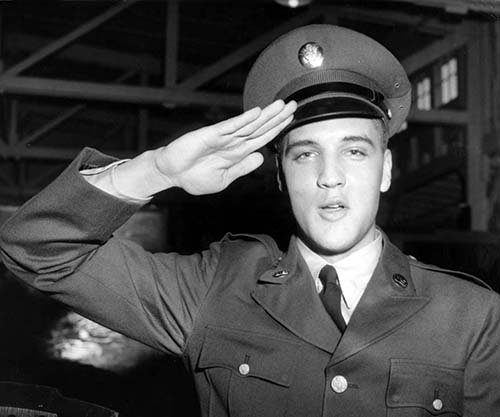
Why Elvis Still Matters Today
Decades after his passing, Elvis Presley’s influence continues to shape music, fashion, and popular culture. From his groundbreaking television appearances and Hollywood films to his disciplined military service, Elvis showed fans the many sides of his life: entertainer, soldier, and icon.
Graceland remains a pilgrimage for fans of all ages, while memorials and tribute events across the globe celebrate his enduring presence. Each performance, each photograph, and each fan tradition carries a piece of his spirit forward. Elvis Presley is more than a historical figure; he is a living legacy, a reminder of how talent, charisma, and authenticity can leave a mark on generations.
Even today, the King’s voice echoes through time, connecting the past to the present and inspiring new generations to discover why Elvis will never be forgotten.
